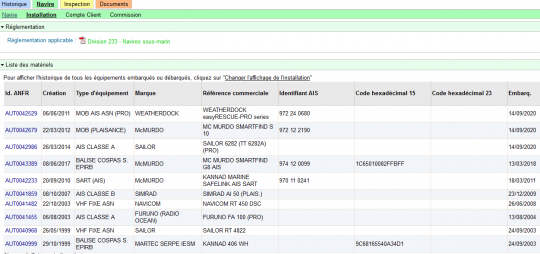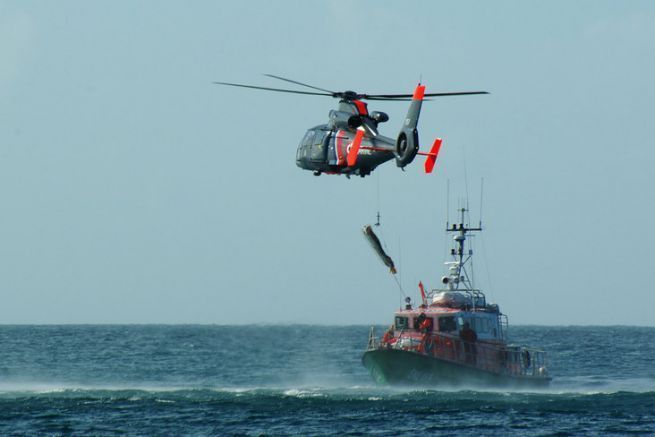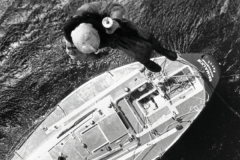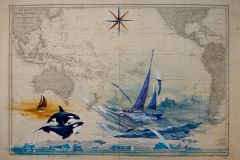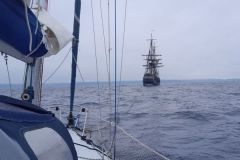When an emergency beacon is triggered, when a May Day message is sent out, when a boat does not return safely to port at the end of the day... In short, as soon as there is any doubt as to the safety of a crew or a boat, the authorities will try to contact the skipper or his relatives as much as possible to make sure that everything is all right.
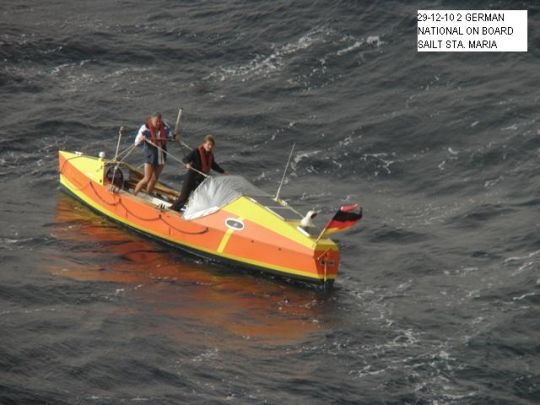
Uncertainty phase
It's this phase we call uncertainty phase or from waiver of doubt during which contact information will be crucial in deciding whether or not to initiate rescue. In the absence of people to contact or capable of responding, this phase of removing doubts may last for a short or long time. Let's imagine that a single contact is on the list and his number is no longer the right one. The CROSS operator, noting this anomaly, will look for a more recent number or another means of contacting the person concerned. This search can take time. And it is certain that this time would be more favorably used for your rescue or that of another in the event of a false alarm.
Information kept safe
This information is optional and disclosed to the authorities only with the consent of the persons concerned. It would be a pity to deprive oneself of the possibility of being saved, especially as this possibility is free of charge and open to all radio licence holders.
Service at the initiative of the licensee
It is on the ANFR teleservices site that you can enter this information. But not only that. The site allows you to announce a trip, a cruise... In short, any information that will help you find yourself in case of a problem.
We would only encourage you to go and complete this information, at least contact us, and keep it up to date, just in case.

Once you have selected the licence (the vessel) concerned by this information, the ANFR website will offer you several options, including "...", "..." and "..." Updating telephone and security contacts "and" Inform the security centres of a trip ".
We're going to look at both of those things. Indeed, they are open enough to allow you to communicate to the authorities information that could prove vital to a possible rescue.

Inform about his cruise, but not only
The cruise information, will allow you to communicate to these authorities possible intentions to cruise with your boat. We recommend that you provide as much information as possible here, crew, description of the boat, ETA... which would be useful for a search. To do this, ask yourself the simple question: " " If I was told to find a boat without further information, what would I need? "
This is illustrated in the example below. It is concise, contains the necessary information and, above all, indicates planned and tangible crossing points. Here the authorities may, if necessary and depending on the dates, contact the Spanish or Cape Verdean authorities to seek possible information.
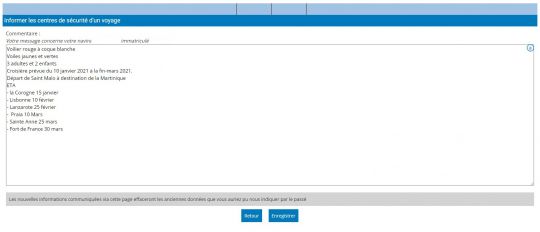
For the example, here is the information we have given you:
" Red sailboat with white hull
Yellow and green sails
3 adults and 2 children
Cruise scheduled from January 10, 2021 to the end of March 2021
Departure from Saint-Malo to Martinique
ETA
- A Coruña 15 January
- Lisbon 10 February
- Lanzarote 25 February
- Prala 10 March
- Saint Anne's Day 25 March
- Fort de France 30 March "
Left free in its form as well as in its bottom, this field is intended to describe with as much information as possible the situation of your boat. You can indicate medical elements relating to this or that passenger, a particular appointment planned in a given place... In a word, any information that will facilitate your rescue or, on the other hand, that will avoid triggering a rescue while you are safely ashore can be included here.
Communicate your updated contact information
Your contact information must be kept up to date at all times. When filling in the information for the French authorities, the telephone number format to be used here is the national format, without country prefix therefore.
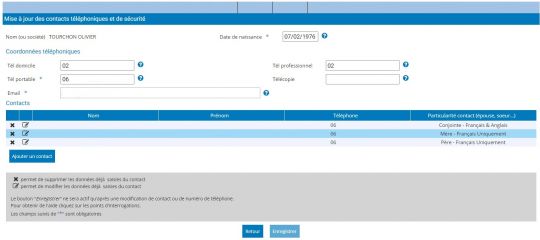
Communicate useful contacts
Define your security contacts
What's a security contact? It is a person who will be able to answer two types of questions (or ideally both):
- Where are you?
She'll be able to tell if you're actually at sea and how long you've been at sea. On the contrary, if you are at home, because she had coffee with you that morning.
- Is there any particular information you need to know?
Here, the questions will be more personal, they may concern a state of health, questions of couple life..
It is according to the ability to provide one or the other of these categories that we advise you to organize the contacts.
Remember to specify the language(s) spoken by each of these contacts, it is possible that the contact only speaks English for example.
At the very least, we recommend that you list your life partner (if applicable), one or two relatives, a friend and a neighbour. Each will be able to answer some of the questions or provide another contact who could answer.
Remember to notify these people that they are "security contacts for the authorities", to avoid surprise and refusal to respond to surprise.
Secure access limited to authorities
Once this information has been filled in, it will be made available, via secure access, to all the authorities who can potentially act for your safety at sea.
You yourself can consult the "public" part of this information on the website of the International Telecommunication Union (ITU), in the "MARS" (Maritime Mobile Access and Retrieval System) section.

Finally, in France, the authorities use an interface called Radiomaritime to access all this information in a single secure tool.
